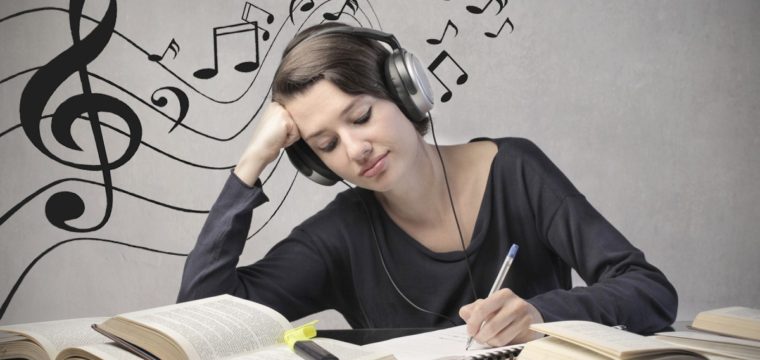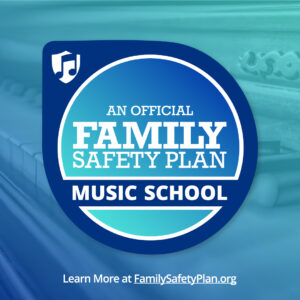
Many parents believe that music and learning musical instruments can enhance children’s intelligence and academic performance. Some pregnant women even play Mozart for their unborn babies in hopes that classical music will give their children an academic edge. It turns out that learning a musical instrument indeed benefits the development of a child’s brain. Ample evidence suggests that taking music lessons at a young age can improve intelligence, cognitive and social development, and verbal communication skills.
Although it is commonly believed that learning classical music is the only way to reap these benefits, any genre of music will work as long as the child actively participates in music making.
Let’s go through some studies that have been done and methods you can employ to reap the benefits of music for your child’s development.
Studies on Music and Intelligence
In a 2004 study led by E. Glenn Schellenberg, PhD, 144 six-year-old children were given a standardized IQ test before entering the first grade, and they were given the same test again at age seven before entering the second grade. During the time between those two tests, they were randomly split into four groups. Two were control groups; one group was given no lessons, and the other group was given drama classes. The two experimental groups were given 36 weeks of vocal or keyboard music lessons. All four groups had reliable increases in IQ as a consequence of entering school; however, the two groups that received music lessons had a far greater increase in IQ, indicating that music lessons can improve intellectual ability over a short duration like 36 weeks.
Schellenberg then asked himself, “Would the effect get bigger with more than a year of lessons?”
In 2006, Schellenberg performed a follow-up study to find out if longer periods of music lessons would generate a higher increase in IQ. The follow-up study found a dose-response association whereby the longer a child takes music lessons, the higher the increase of IQ and academic performance. On average, every month of music lessons was accompanied by one-sixth of a point of increase in IQ. According to the study, the average increase of IQ would be 7.5 points over a period of six years. Besides studying children, the follow-up study also looked at college freshmen and found that taking music lessons as a child is a significant predictor of a higher IQ in young adulthood and a history of better grades in school.
Jamming instead of reading
It is widely known that reading to or with children benefits the developing brain. However, wouldn’t it be fun if the same benefits can be produced from playing music with your children? A 2015 study by the University of Queensland has shown that informal music education at home can produce the same benefits associated with shared book-reading, but at a higher rate of efficacy.
This conclusion was drawn from data analysis generated from studying more than 3,000 children. Parents of these children were asked to replace all shared-reading activities with music activities when the children were between two and three years old. The children were then given a range of tests that measured social, emotional, and cognitive improvements two years later. The results showed that music activities were particularly linked with prosocial skills, numeracy, and attentional regulation.
Music and Speech
It is often said that music is a form of communication that transcends languages, but it is now believed that music can help children learn spoken languages. In 2008, a study titled “Musical Training Influences Linguistic Abilities in 8-Year-Old Children: More Evidence for Brain Plasticity” was conducted to determine whether musical training can improve non-musical abilities such as reading and speech.
The study began by having 32 non-musician 8-year-old children take a series of tests to determine their reading abilities and pitch discrimination abilities in relation to speech. The tests included a WISC-III intelligence test and reading tests. The children were then assigned to music or painting training for a period of six months. After six months, the children were tested again and the study found improved results in reading and speech in children that underwent musical training. Before-and-after comparison of brain wave patterns also showed that the six months of musical training had significant effects on the neural processes of the children. The results revealed a positive transfer of abilities between music and speech and highlighted the influence of musical training. Additionally, the results showed the remarkable plasticity of a child’s brain, considering a relatively short period of training had a strong impact on the organizational structure of a child’s brain.
Active participation and The Harmony Project
So far we’ve discussed how music can improve a child’s IQ, prosocial skills, numeracy, attention span, reading abilities, and speech. However, there is a catch to all of this. In order to fully reap the benefits, the child has to actively participate in the activities.
This conclusion was drawn from a 2014 study conducted by Northwestern University. The Northwestern team was first contacted by The Harmony Project, a community music program aimed towards children from low-income families in Los Angeles, to provide scientific evidence of the program’s high success rate with its students.
In an email to TIME, Nina Kraus, director of Northwestern’s Auditory Neuroscience Laboratory and co-author of the 2014 study stated that, “Even in a group of highly motivated students, small variations in music engagement — attendance and class participation — predicted the strength of neural processing after music training.” This meant that students who were more engaged in music class reaped more benefits than those who were less engaged. Additionally, the study compared students who played musical instruments to students from a music appreciation group and found that actively listening to music didn’t provide the same outcome as actively making music.
So how do you keep your children actively interested and participating in music class? Here are a few tips: First, allow your child to choose the instrument and style of music he/she wants to learn. As stated in the beginning, the benefits of learning music is not exclusive to classical music, contrary to previously held beliefs. If you force an instrument or style of music on your child, they’re not going to enjoy it as much. Second, find a school who’s teachers are friendly, qualified, and work well with children. Parents should be encouraged to become involved in the process by sitting in on lessons. Third, look for a school that prioritizes low pressure recitals and goal oriented lessons. Finally, look for teachers who’s lessons are both structured and fun!
Patience, discipline, and the value of hard-work
When it comes to craft and art, there is only one way to get really good at it: practice, practice, practice. However talented and naturally inclined your children may be, they will not progress without practice. And even with practice, it takes years to become proficient at anything. Throughout the journey, your child will learn how to be patient as results are oftentimes slow and progress is not guaranteed. There will also be days when practicing may feel like a chore, but these are good opportunities to teach discipline. It takes discipline to continue practicing in the face of activities that may seem more interesting at the time. Music, or any other craft, is a great opportunity for children to learn patience and discipline.
Children can learn the value of hard-work when they learn an instrument. Learning an instrument is an activity with tangible outcomes and it’s a great learning opportunity for children at a young age. The idea is simple: you work hard, you get results; you don’t work hard, and there’s no progress. It’s as simple as that.
Everyone needs a hobby
As you can see, the value of music for the cognitive and social development of children is very positive. Additionally, it is a great hobby to pick up as it is something that can also be done as a group. Group activities like playing music provides a great bonding opportunity for parents and their children. I find activities like these especially important considering many kids are quick to reach for the nearby iPad for entertainment these days. Why not reach for the nearby instrument instead?
You may also be wondering if the previously stated benefits apply to adults, and the good news is, many of them do. There have been just as many studies done on adults as there have been for children!
References:
“Jamming with Toddlers Trumps Hitting the Books.” UQ News. The University of Queensland, 15 Sept. 2015. Web. 29 June 2017.
Locker, Melissa. “Music Can Alter Your Child’s Brain.” Time. Time, 17 Dec. 2014. Web. 29 June 2017.
Moreno, Sylvain, Carlos Marques, Andreia Santos, Manuela Santos, São Luís Castro, and Mireille Besson. “Musical Training Influences Linguistic Abilities in 8-Year-Old Children: More Evidence for Brain Plasticity.” Cerebral Cortex. Oxford University Press, 01 Oct. 2008. Web. 29 June 2017.
Munsey, C. “Music Lessons May Boost IQ and Grades.” Monitor on Psychology. American Psychological Association, June 2006. Web. 29 June 2017.
Skoe, Erika, and Nina Kraus. “A Little Goes a Long Way: How the Adult Brain Is Shaped by Musical Training in Childhood.” Journal of Neuroscience. Society for Neuroscience, 22 Aug. 2012. Web. 29 June 2017.

